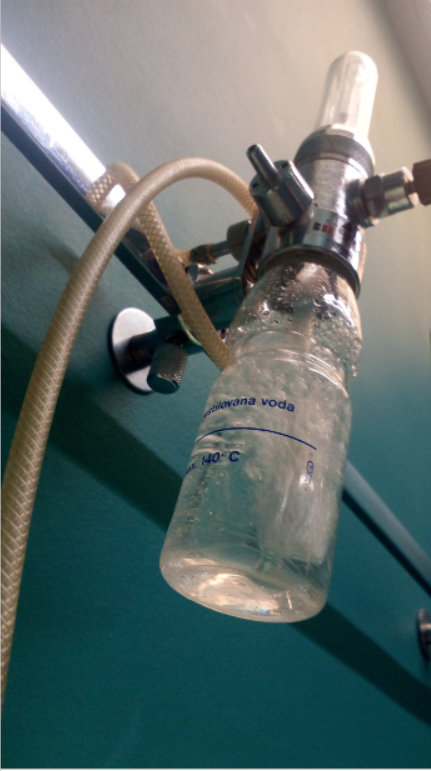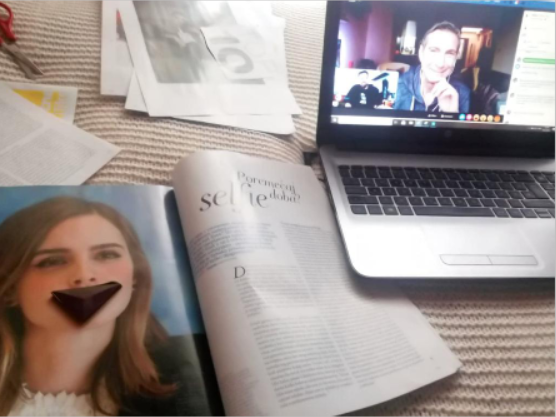April 5, 2020 - Do foreigners in Croatia feel more or less safe sitting out COVID-19 here than in their home country, and what are their experiences? A new series on TCN, with Mariann from Hungary in Zagreb as our 25th contributor.
Oxford University recently published some research on government responses to coronavirus which showed that Croatia currently has the strictest measures in the world. While inconvenient, this is a good thing in terms of reducing the spread of the virus, and I am certainly not alone in my admiration of the official Croatian handling of this crisis in recent weeks, both in terms of action and communication.
But what do other expats here think? And how does it compare with the response in their home country? Would they rather sit this one out here or there? In the first of a new series on TCN, we will be featuring expats from all over the world to see what their views are on life in corona Croatia rather than back home. So far we have heard from expats in Croatia from Romania, USA, Ireland, UK, Mexico, Argentina, Spain, Singapore, Holland, Canada, India, Hong Kong, Venezuela, Latvia, China, Honduras and Germany. Next up, Mariann from Hungary in Zagreb.
If you would like to contribute to this series, full details are below. Now, over to Mariann.
Firstly, how are you? Are you alone/with someone? Tell us a little about your situation and sanity levels.
Thank God, I'm not alone. I am with my family. The sanity level is adequate.
What do you think about the economic measures the government is taking, are they helping your business?
I think the government is beginning to take heed of the demands of the group named Glas Poduzetnika, which voices many entrepreneurs’ view on the effect the virus is having on business. The 4000 kuna pay will be helpful to many, although the amount of the sum is debatable.
As I’m a sole proprietor (translator and copywriter) I don't think I will have the right to receive the sum, as this month’s revenue hasn’t gone down 50%. It remains to be seen whether the same will be the case for April - then I will apply for the emergency fund.
When did you realise that corona was going to be a big issue?
I realised the gravity of it somewhere in mid-March. A bit later. The reason for it is that I had asthma and a high temperature at the beginning of March and was taken to hospital to receive medication. Everyone was worried that I might have Corona.
Then the earthquake in Zagreb struck the following week and it became pretty unbearable. I have been following the news every day since then.
What is your impression of the way Croatia is dealing with the crisis? How safe do you feel?
I don’t know whether the Oxford university study is right, but if it is, then Croatia is really a big hero in this situation. Swift handling, clear guidelines - If everyone follows them, then it should be ok. The question is, how much longer will we have to bear this isolation?
Now compare that to your home country and how they are handling it. What is Croatia doing better/worse?
As I have been living in Zagreb now for more than 30 years, it’s understandable that my focus is more or less on Croatia.
I only heard the devastating news of democracy being overthrown by Orban power. This has been going on in milder degrees in recent years, with some media challenging his authority being wiped out, but now it really escalated.IThe measures Orban took, though, are very good, in my opinion. These measures preceded the measures of the Croatian government and they have been more or less “copied” (here many would prove me wrong, but I have this opinion). Orban instantly acted by relieving businesses of paying taxes and social contributions until July, whereas here it was not clear whether a delay or write off would ensue. Some pressure was needed to make that happen.
What about official communications from the authorities, compared to your home country?
Unfortunately, I can’t provide a comparative answer. I only know how the Croatian authorities communicated, which to me seems just right.
What's the one thing you wish you had taken with you into self-isolation?
I have everything I need here with me. My family is with me.
One thing you have learned about yourself, and one thing you have learned about others during this crisis.
I have learned to be even more humane, to offer help. I have also learned to obey since it’s important to listen to what the true experts say, and not some wannabe experts. And to be content with what I have.
If you need translation services, you can contact Mariann on www.tralangia.com
Thanks, Mariann, stay safe and see you on the other side.
TCN is starting a new feature series on foreign experiences of sitting out COVID-19 here in Croatia compared to their home country. If you would like to contribute, the questions are below. Please also include a para about yourself and where you are from, and a link to your website if you would like. Please also send 3-4 photos minimum to This email address is being protected from spambots. You need JavaScript enabled to view it. Subject Corona Foreigner
If you would be interested to record a video version for our partners www.rplus.video please let us know in the email. Thanks and stay safe.
Foreigners Self-Isolating in Croatia: Do You Feel Safer Than in Your Home Country?
Firstly, how are you? Are you alone/with someone? Tell us a little about your situation and sanity levels.
What do you think about the economic measures the government is taking, are they helping your business? (PLEASE IGNORE IF THIS DOES NOT AFFECT YOU)
When did you realise that corona was going to be a big issue?
What is your impression of the way Croatia is dealing with the crisis? How safe do you feel?
Now compare that to your home country and how they are handling it. What is Croatia doing better/worse?
What about official communications from the authorities, compared to your home country?
What's the one thing you wish you had taken with you into self-isolation.
One thing you have learned about yourself, and one thing you have learned about others during this crisis.
TCN has recently become a partner in Robert Tomic Zuber's new R+ video channel, initially telling stories about corona experiences. You can see the first TCN contribution from this morning, my video from Jelsa talking about the realities of running a news portal in the corona era below. If you would like to also submit a video interview, please find Robert's guidelines below
VIDEO RECORDING GUIDE
The video footage should be recorded so that the cell phone is turned horizontally (landscape mode).
There are several rules for television and video news:- length is not a virtue- a picture speaks more than a thousand words
In short, this would mean that your story should not last more than 90 seconds and that everything you say in the report should be shown by video (for example, if you talk about empty streets, we should see those empty streets, etc.).
How to do it with your cell phone? First, use a selfie camera to record yourself telling your story for about a minute and a half. Ideally, it would be taken in the exterior, except in situations where you are reporting on things in the interior (quarantine, hospital, self-isolation, etc.). Also, when shooting, move freely, make sure everything is not static.
After you have recorded your report, you should capture footage that will tell your story with a picture, such as an earlier example with empty streets.
One of the basic rules of TV journalism is that the story is told in the same way as a journalist with his text. Therefore, we ask you for additional effort. Because we work in a very specific situation, sometimes you may not be able to capture footage for each sentence of the report. In this case, record the details on the streets: people walking, the main features of the city where you live, inscriptions on the windows related to the virus, etc.
The same rules apply if you are shooting a story from your apartment, self-isolation, quarantine. We also need you to capture footage that describes your story.
When shooting frames to cover your reports, it is important that you change the angle of the shot (in other words, shoot that empty street from several angles). Also, when shooting a detail, count at least five seconds before removing the camera to another detail.
The material should be about 5 minutes long (90 seconds of your report + frames to cover your story).
After recording everything, send us to Zagreb, preferably via WeTransfer to This email address is being protected from spambots. You need JavaScript enabled to view it.




